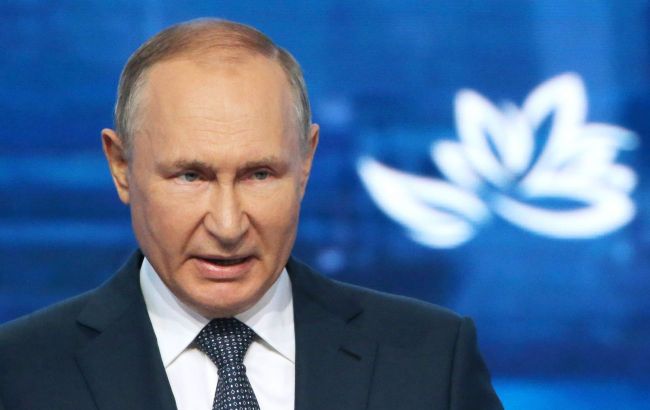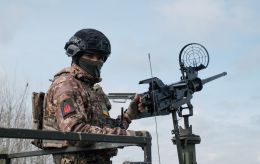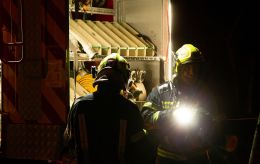Putin seeks to retake Kursk region with North Korean troops - FT
 Photo: Russian president Vladimir Putin (Getty Images)
Photo: Russian president Vladimir Putin (Getty Images)
North Korean troops stationed in Russia may be deployed to the Kursk region. Russian president Vladimir Putin hopes they will help reclaim parts of the Kursk region currently controlled by the Ukrainian Armed Forces, reports the Financial Times.
North Korea has sent 12,000 soldiers to Russia to assist Moscow in retaking the Kursk region, where Ukrainian forces have held territory since August.
Analysts suggest that North Korean forces are too small to change the course of the war. Russia would need to double its 50,000-strong contingent in the Kursk region to push out Ukrainian forces and launch a new wave of mobilization to achieve significant gains along the Ukrainian front line.
However, Western analysts believe North Korean troops could still pose challenges for Ukraine. They may have better cohesion and motivation, potentially fighting in ways Russian forces cannot, especially given the latter’s low morale.
Western intelligence sources report that Putin has resisted calls from his senior leadership to launch a new wave of mobilization, instead offering large bonuses to volunteers. This has helped Russia maintain a recruitment pace of 30,000 new soldiers per month, and payments to recruits have been greatly increased in various regions.
In Belgorod, for example, bonuses for recruits were tripled from 800,000 rubles in August to 3 million rubles in October. FT notes that this is "a life-changing sum," as the average monthly salary in the region last year was 55,000 rubles.
According to South Korea’s National Intelligence Service, troops from North Korea’s 11th Army, an elite unit known as the Storm Corps, are being sent to Russia. These are not ordinary North Korean soldiers, most of whom have never received proper combat training. This is a well-equipped and trained mobile light infantry.
In the Kursk region, unlike other front lines, the situation is undefined. This means Russia cannot rely on its usual tactics - continuous infantry attacks supported by artillery bombardment. However, Russia does use its air superiority to bomb its own villages.
Kim Jong Un’s plans
South Korean analysts note that North Korean dictator Kim Jong Un has "always wanted" to deploy troops in Ukraine. This would give him more leverage over Moscow and potentially grant him access to advanced Russian military technology.
The North Korean leader seeks to strengthen his ballistic missile, space, and nuclear programs.
Moscow could reward North Korea with financial aid, food, and fuel, or deepen its partnership with the isolated communist state by providing advanced weapons. This could include transferring cutting-edge weapons and fostering collaboration between Russian and North Korean scientists on missile technology and underwater warfare.
Reactions from Seoul and Beijing
The deployment of North Korean troops to the front line may prompt South Korea to provide more weapons to Ukraine. So far, Seoul has only offered non-lethal military and humanitarian aid and limited its supply of 155-mm artillery shells to the US.
However, a recent statement from a South Korean presidential representative indicated that Seoul might consider sending offensive weapons to Kyiv. This could involve not only shells but also howitzers and missile defense systems.
Analysts also note that China is not pleased with the deepening military ties between Russia and North Korea. There’s a possibility that Seoul and Beijing will intensify their covert diplomacy.
"South Korea can definitely make a case with China that it will step up co-operation with the US on the Korean peninsula if China doesn’t address this problem," the report says.
North Korea’s involvement in the war
North Korea has sent troops to Russia to participate in the war against Ukraine. According to intelligence, North Korea is sending 11,000 soldiers. President Volodymyr Zelenskyy said that Pyongyang might be preparing two brigades of troops for the war in Ukraine, each likely consisting of 6,000 soldiers.
Head of military intelligence Kyrylo Budanov emphasized that North Korea requested nuclear weapons technology from Russia in exchange for soldiers and manpower.

